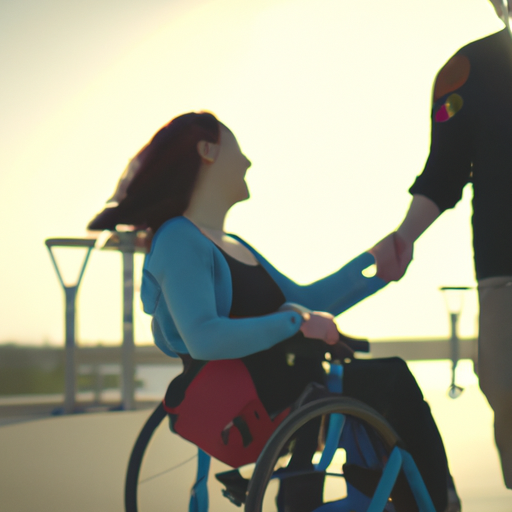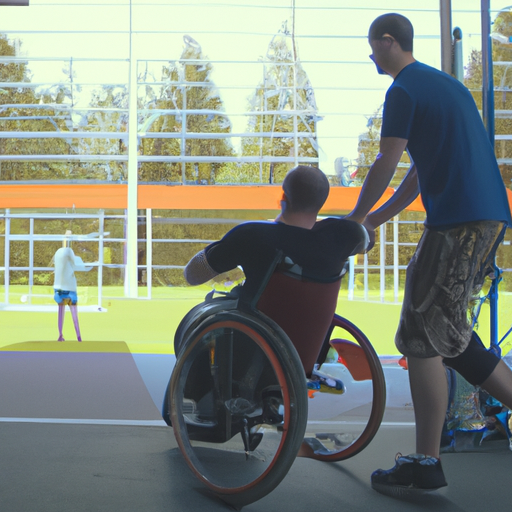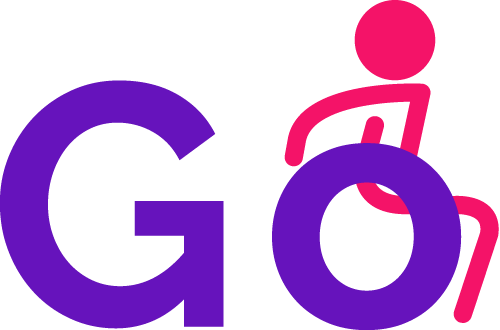How Social Interactions Can Help Improve Quality of Life for Individuals with Spinal Cord Injuries
Spinal cord injuries can have a devastating impact on an individual’s quality of life. However, social interactions can play an important role in helping individuals with spinal cord injuries to improve their quality of life.
Social interactions can provide individuals with spinal cord injuries with a sense of belonging and connection to the world around them. This can help to reduce feelings of isolation and loneliness, which can be common among individuals with spinal cord injuries. Social interactions can also provide individuals with spinal cord injuries with emotional support and a sense of purpose. This can help to reduce feelings of depression and anxiety, which can be common among individuals with spinal cord injuries.
Social interactions can also provide individuals with spinal cord injuries with practical support. This can include help with activities of daily living, such as shopping, cooking, and cleaning. This can help to reduce the burden of caregiving and provide individuals with spinal cord injuries with more independence.
Social interactions can also provide individuals with spinal cord injuries with access to resources and information. This can include information about medical treatments, assistive devices, and other services that can help to improve quality of life.
Finally, social interactions can provide individuals with spinal cord injuries with recreational activities. This can include activities such as sports, music, art, and other hobbies. This can help to reduce boredom and provide individuals with spinal cord injuries with a sense of enjoyment and fulfillment.
In conclusion, social interactions can play an important role in helping individuals with spinal cord injuries to improve their quality of life. Social interactions can provide individuals with spinal cord injuries with a sense of belonging, emotional support, practical support, access to resources and information, and recreational activities.
Exploring the Benefits of Social Support Groups for Individuals with Spinal Cord Injuries

Spinal cord injuries can be devastating, leaving individuals with physical, emotional, and financial challenges. Fortunately, social support groups can provide invaluable assistance to those with spinal cord injuries. These groups offer a variety of benefits, including emotional support, practical advice, and a sense of community.
Emotional support is one of the most important benefits of social support groups. Individuals with spinal cord injuries often experience feelings of isolation and depression. Social support groups provide a safe space for individuals to share their feelings and experiences with others who understand. This can be incredibly helpful in reducing feelings of loneliness and helping individuals cope with their injury.
Practical advice is another benefit of social support groups. Members of these groups can provide valuable information about living with a spinal cord injury. This includes advice on how to manage physical and emotional challenges, as well as tips on how to access resources and services. This can be especially helpful for individuals who are new to living with a spinal cord injury.
Finally, social support groups can provide a sense of community. These groups can help individuals feel connected to others who are going through similar experiences. This can be incredibly beneficial for individuals who may otherwise feel isolated and alone.
In conclusion, social support groups can provide invaluable assistance to individuals with spinal cord injuries. These groups offer emotional support, practical advice, and a sense of community. For these reasons, social support groups can be an invaluable resource for individuals with spinal cord injuries.
The Role of Technology in Facilitating Social Interactions for Individuals with Spinal Cord Injuries
Technology has become an increasingly important part of our lives, and it has the potential to be a powerful tool for individuals with spinal cord injuries. Technology can facilitate social interactions for individuals with spinal cord injuries in a variety of ways.
One way technology can help is by providing access to communication tools. Individuals with spinal cord injuries may have difficulty speaking or writing, but technology can provide them with alternative methods of communication. For example, voice recognition software can allow them to communicate through their computers, and text-to-speech software can enable them to communicate through their phones. Additionally, video conferencing tools can allow them to connect with friends and family members who are far away.
Technology can also provide individuals with spinal cord injuries with access to social networks. Social networks can provide a platform for individuals to connect with others who have similar interests and experiences. This can be especially beneficial for individuals with spinal cord injuries, as it can help them to find support and understanding from people who understand their situation.
Finally, technology can provide individuals with spinal cord injuries with access to virtual reality (VR) environments. VR environments can provide individuals with a safe and comfortable space to interact with others. This can be especially beneficial for individuals who may not be able to participate in physical activities due to their injury.
In conclusion, technology can be a powerful tool for individuals with spinal cord injuries. It can provide them with access to communication tools, social networks, and virtual reality environments, which can help them to stay connected with others and participate in social activities.


